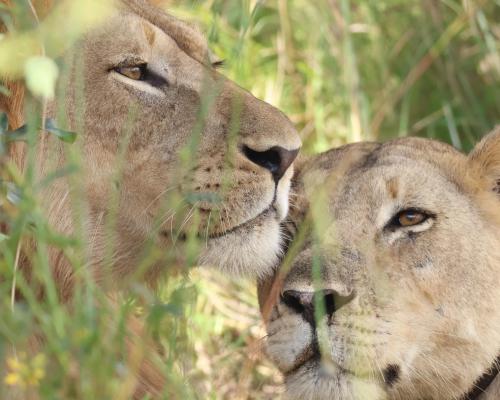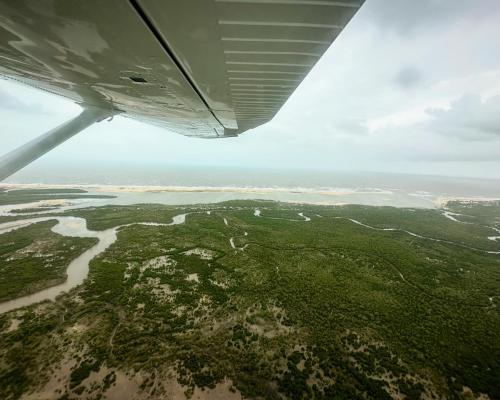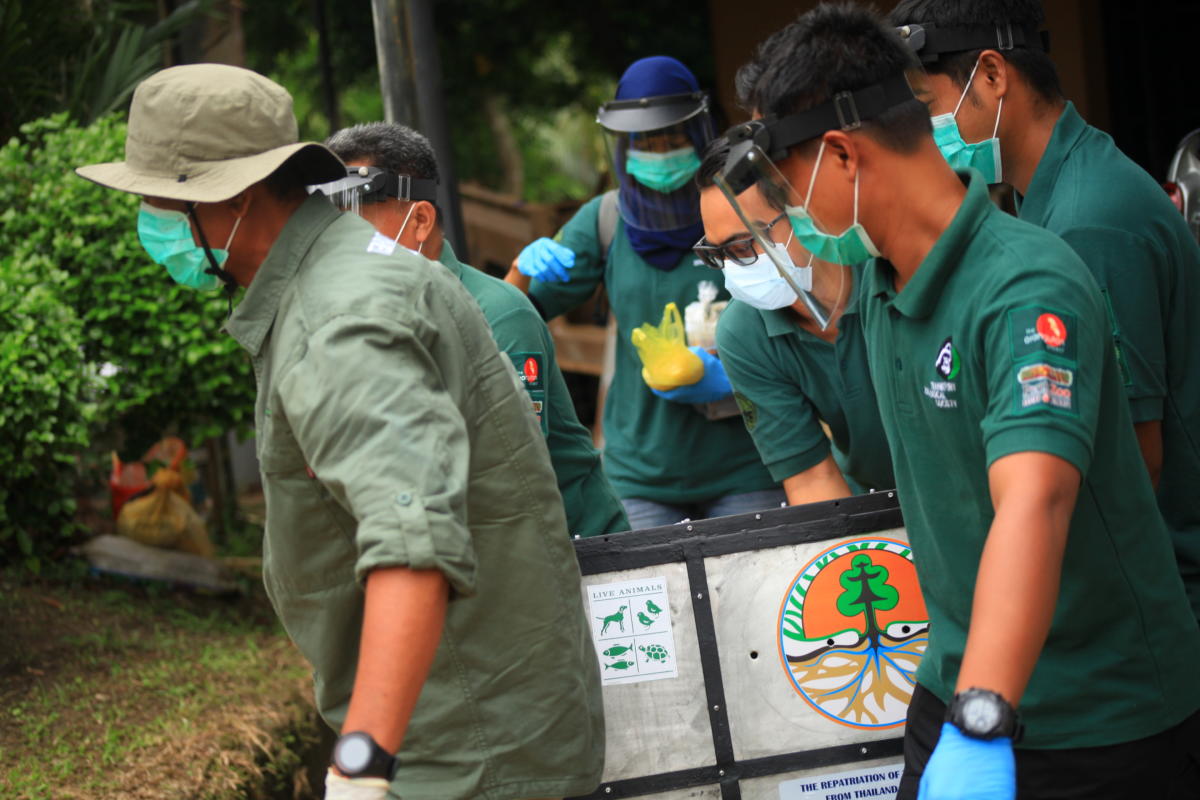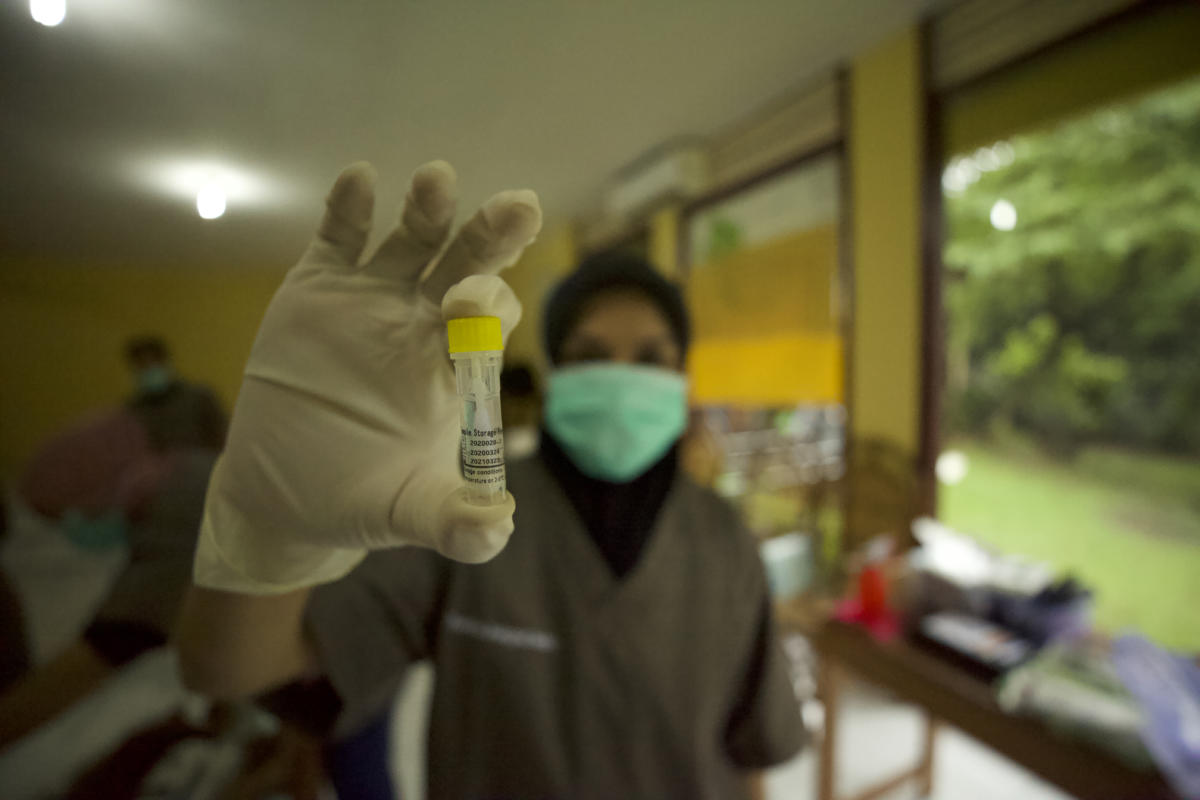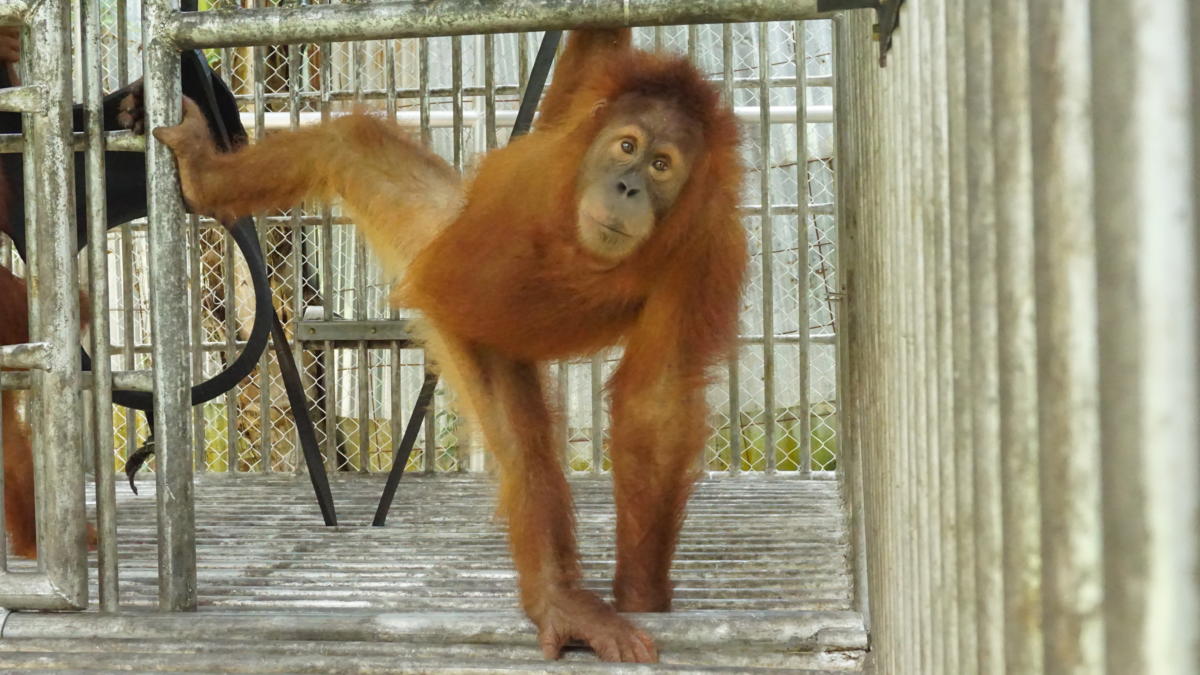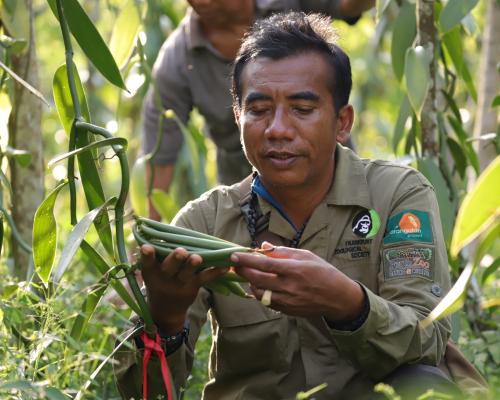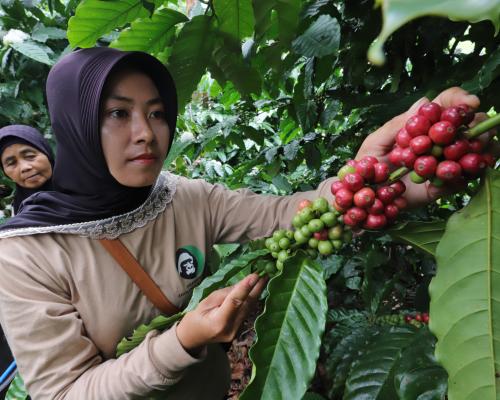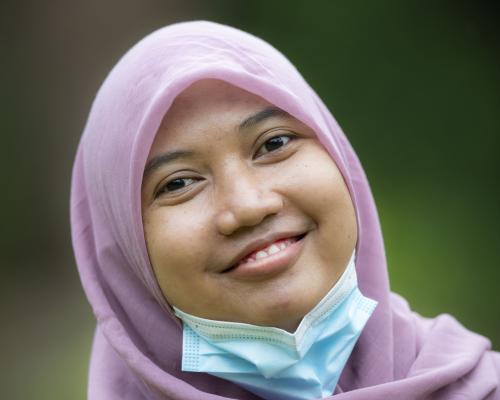For five years, two young Sumatran orangutans were kept as pets in a private home in Thailand. Now they are in Indonesia, at the FZS Jungle School, where soon they will begin learning the skills, they will need to someday survive independently in the forests of Bukit Tiga Puluh.
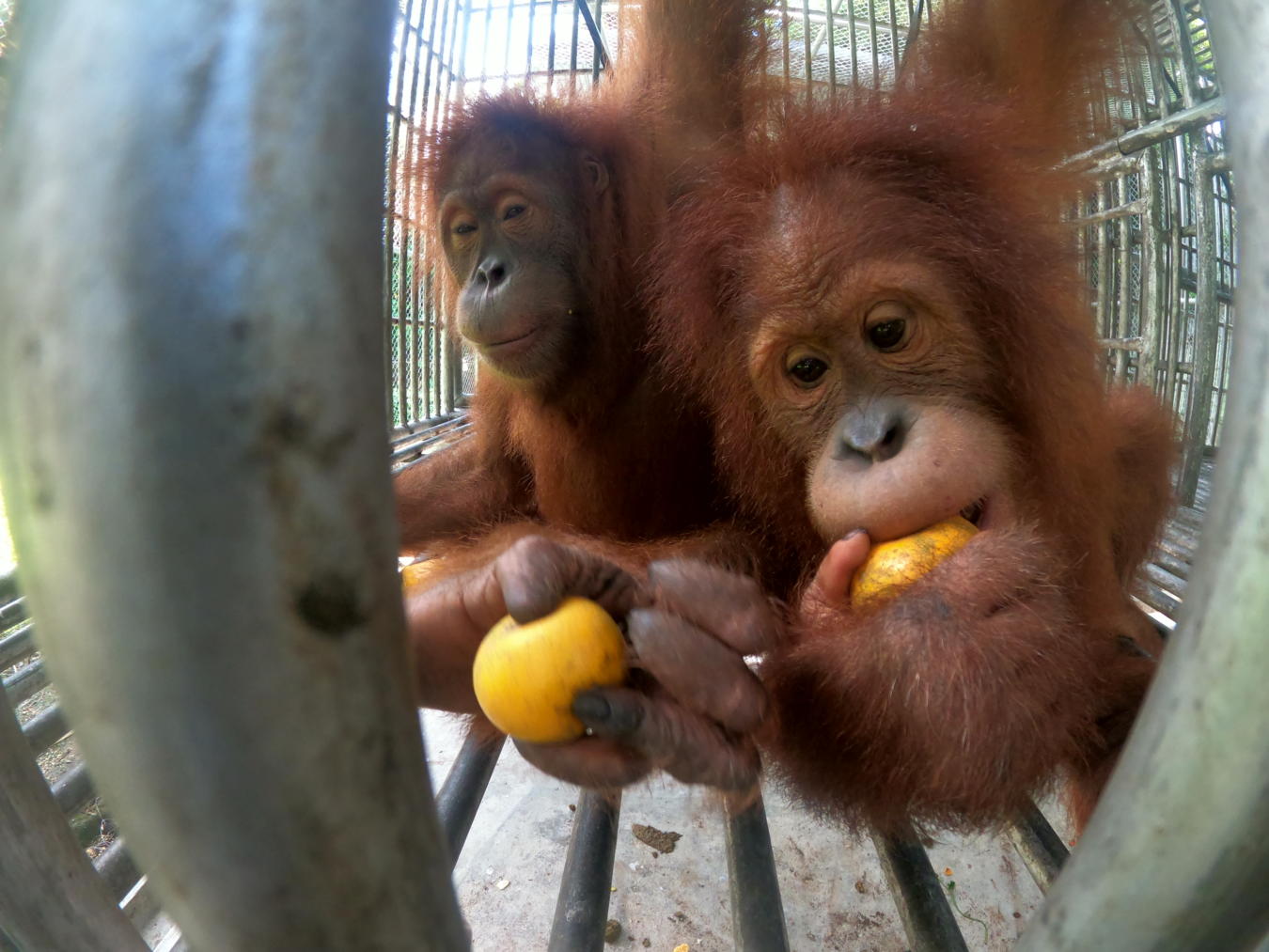
A fresh start
Afternoons are reserved for nest building practice for Natalee and Ung Aing, two Sumatran orangutans. They are excited for this task, grabbing the leaves and twigs their caretakers bring to their enclosure the minute the items arrive, and then enthusiastically building their nests inside their enclosure. They are making good progress. The quality of their nests improves a little more every day.
Natalee and Ung Aing are about six years old and victims of the illegal wildlife trade. When they were young, they were smuggled into Thailand where they became pets. After being confiscated from their previous owners by Thai authorities (Natural Resources and Environmental Crimes Division), they were brought back to Indonesia on the 18th of December 2020. Since then, they have been in quarantine in Jambi, Indonesia with the plan to transfer them to the Jungle School on the 5th of April 2021.
The first stage of their quarantine was not as much fun as nest-building because, for their safety and the health of other orangutans in the country, Natalee and Ung Aing needed to undergo a few medical procedures. FZS veterinarians, Dr. Andhani Widya and Riris Prawesti examined them thoroughly for signs of tuberculosis, salmonella, malaria, and Covid-19. Fortunately, the orangutans were in good shape and all results from these tests were negative.
Now the next stage of their lives can begin, this will include schooling to prepare them for independent life in the wild. They have a lot to catch up on, considering they are not babies who learn quickly and don’t have their mothers, their original teachers, with whom they normally would live for about eight years.
While still in quarantine, the orangutans are introduced to their new surrogate ‘mothers’, who are FZS trained staff, with whom they will need to develop a trust bond if they are to succeed in learning new skills. This bonding is made easier with the presence of food, which the trainers bring to the orangutans five times a day.
But the trainers want the orangutans to also enrich their minds so that they don’t become bored during their quarantine, so, the trainers give Ung Aing and Natalee puzzles to solve. Puzzles such as fruits hidden inside wrapped banana leaf parcels and unopened coconuts that they need to open are some examples. The orangutans can then examine and play with those things, while using their brains to figure out how to get to the delicious food hidden inside.
After their three-month quarantine, the two orangutans will be transported to FZS’s Danau Alo station where they will advance their studies at the Jungle School. Here they will learn how to search for food, how to climb trees and how to build sleeping nests that won’t fall apart.
Since Ung Aing and Natalee were only a year or two old when they came into human care, it may take them a little longer to catch up and be ready for life in the jungle, explains Program Manager Dr. Peter Pratje. The trainers will try to teach them everything they need to know and monitor their progress.
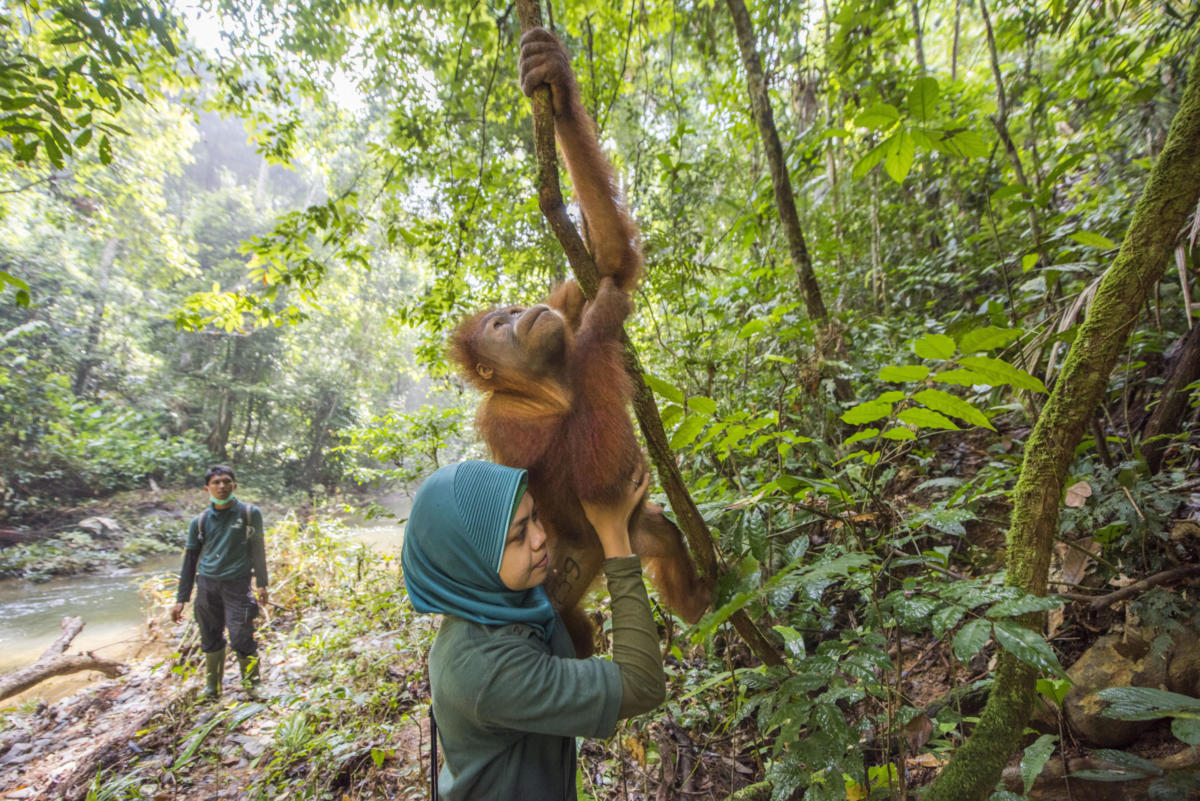
Upon completion of the Jungle School, these two orangutans will join the Bukit Tiga Puluh’s orangutan population that Dr. Pratje and his team have been adding to for over 20 years. This group consists of 175 animals with similar life stories to Ung Aing and Natalee. New arrivals, as well as the increasing number of babies being born to the previously released orangutans, is helping the population grow to a stable and self-sustaining number, which Dr. Pratje says needs to be a minimum of 250 reproductive animals.
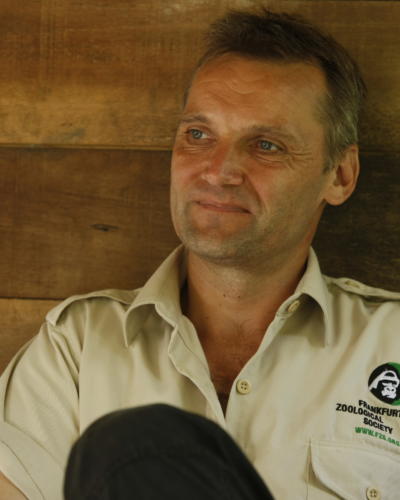
“The trainers will try to teach them everything they need to know and monitor their progress”
-
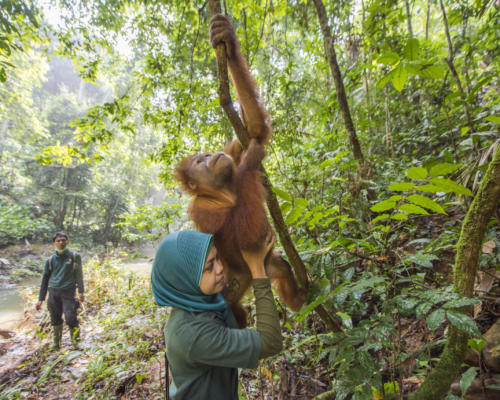
Jungle School for Sumatran orangutans
-
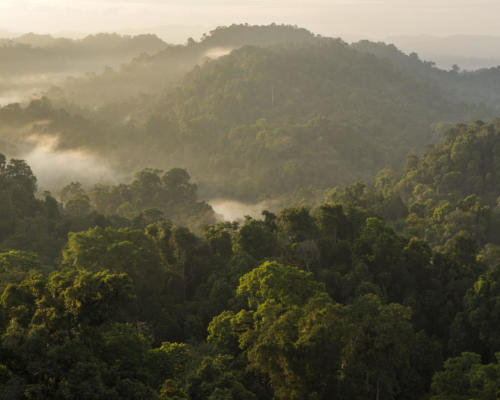 Indonesia
Indonesia
Bukit Tiga Puluh
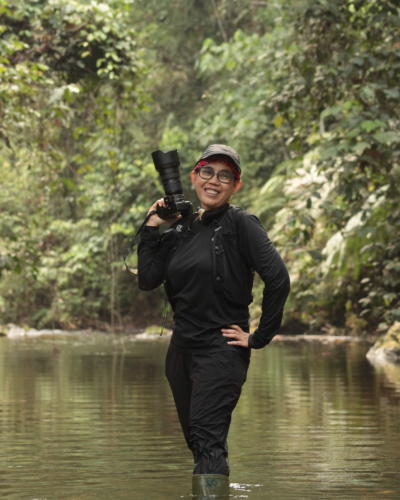
Endah Wahyu Sulistianti is FZS Indonesia’s Public Relations Officer. Before joining FZS, Endah worked as a journalist for more than 15 years in Indonesia, focusing on environment issues such as illegal logging and wildlife poaching activity. She is a ‘Fulbright Scholar’ with a master’s degree in Documentary Filmmaking. She is an active mountaineer and scuba diver since she joined Wanadri, an Indonesian Moutain and Jungle association explorer 24 years ago.






